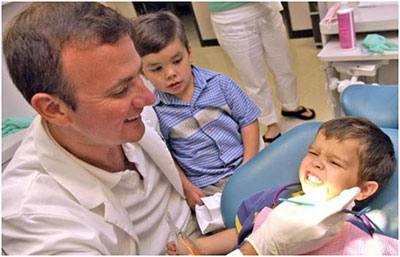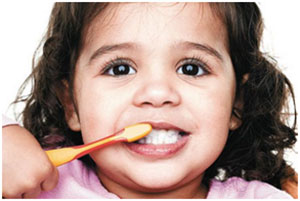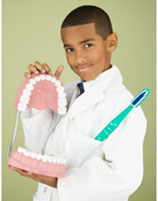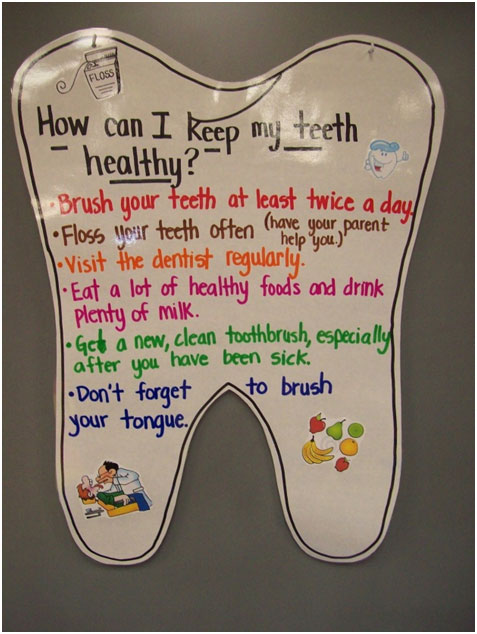A child's first teeth are very important to their health. We all know that teeth are required for chewing food, but they have other functions too. The upper teeth and palate contribute for making certain sounds during speech. The primary teeth also maintain space for the permanent teeth, developing underneath them in the jaws. Severely decayed teeth can cause pain and infection and leads to pus formation so it’s very important to provide correct treatment within time. Good oral health practices should begin when the child first teeth erupt and continued throughout adult life. Taking care of your child’s oral health will lead into having a cavity free set of teeth.
We recommend that you should take your baby to the dentist by 12 months of age (1st birthday) and every 6 months after that.


 Children need smaller brushes, generally a brush with soft end-rounded or polished bristles is recommended, since it is less likely to injure the gums. Brushing removes plaque from the inner, outer and chewing surfaces of the teeth. Children should be advised to brush in a round motion (circular strokes). A tooth paste with fluoride is always recommended.
Children need smaller brushes, generally a brush with soft end-rounded or polished bristles is recommended, since it is less likely to injure the gums. Brushing removes plaque from the inner, outer and chewing surfaces of the teeth. Children should be advised to brush in a round motion (circular strokes). A tooth paste with fluoride is always recommended.
